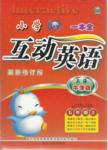题目内容
For _____ film of Schindler’s List, Spielberg won _____ Oscar, Hollywood’s highest prize.
A.a ; an B.a ; the
C.the ; an D.不填 ; the
C
【解析】
试题分析:考查冠词搭配。a意为一、一个,表示泛指,an一,用在元音开头的单词前,the表示特指,根据句意,第一空应该是特指辛德勒名单这部电影,第二空是泛指赢得了一个奥斯卡奖,句意:因为电影辛德勒名单,斯皮尔伯格赢得了好莱坞最高奖—奥斯卡奖。故选C
考点:考查冠词搭配

练习册系列答案
 互动英语系列答案
互动英语系列答案 名牌学校分层周周测系列答案
名牌学校分层周周测系列答案
相关题目